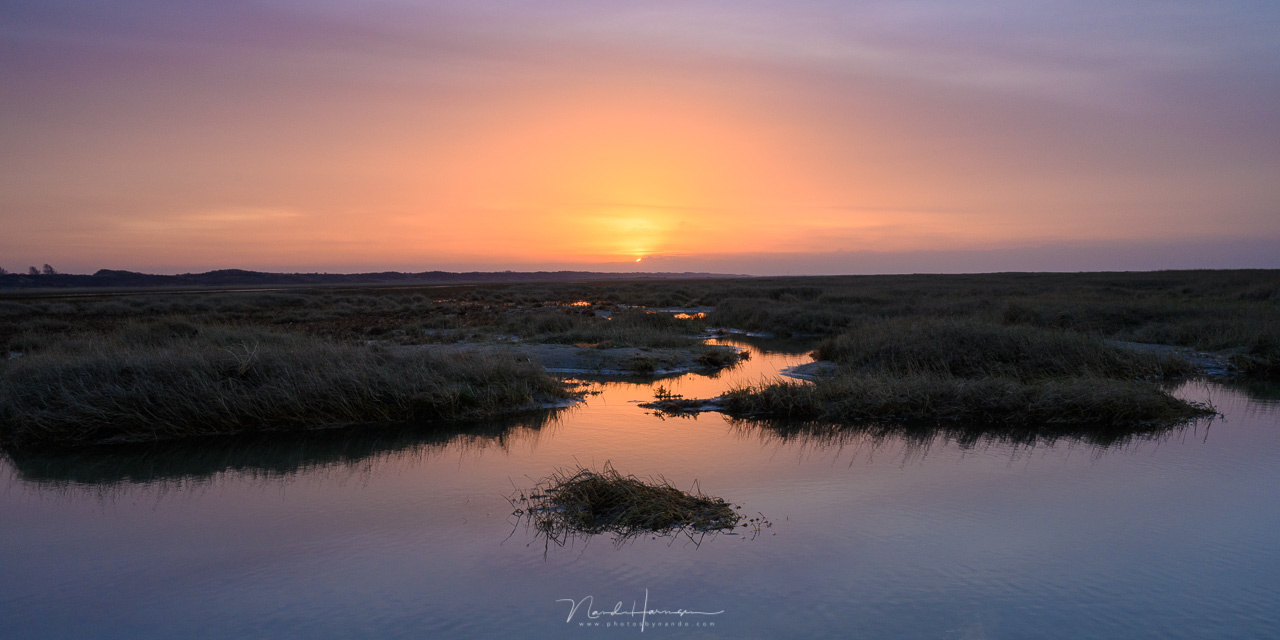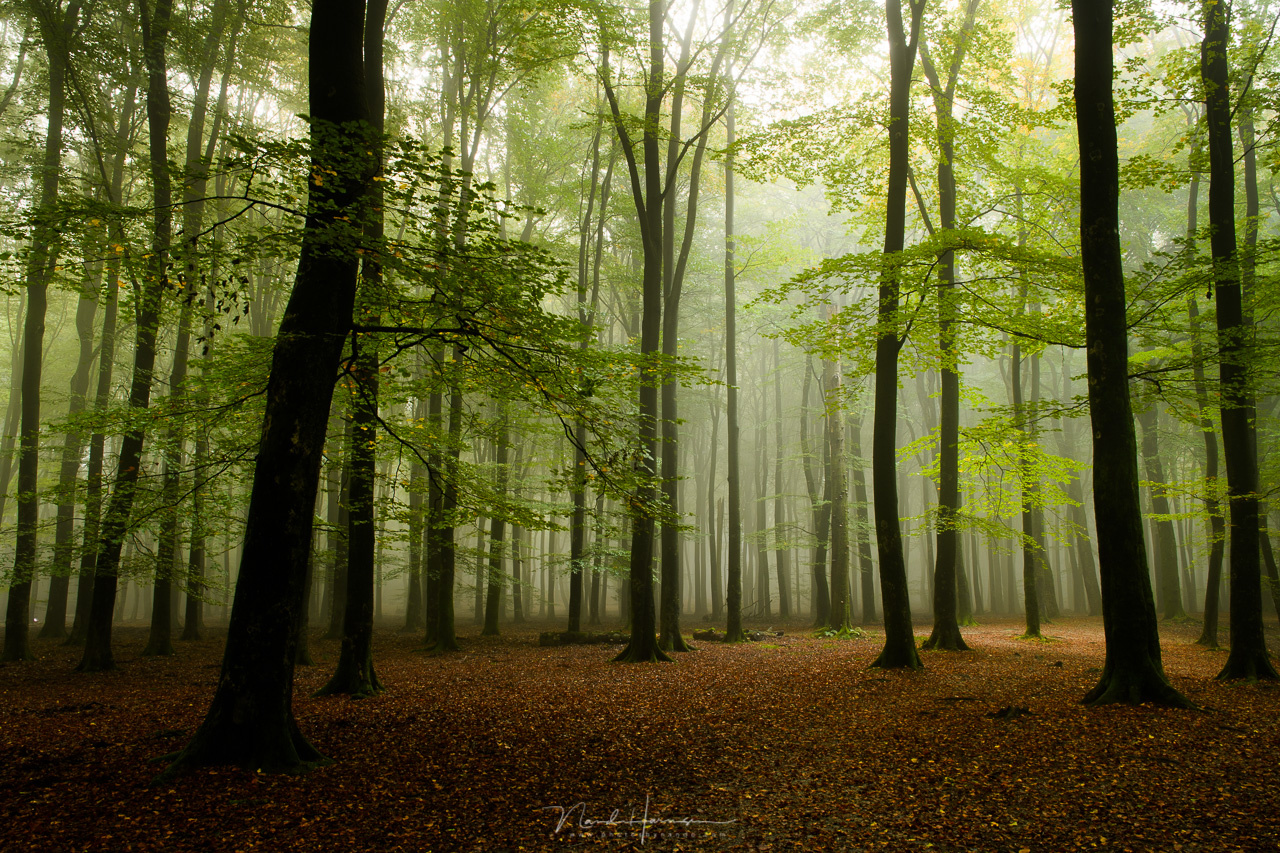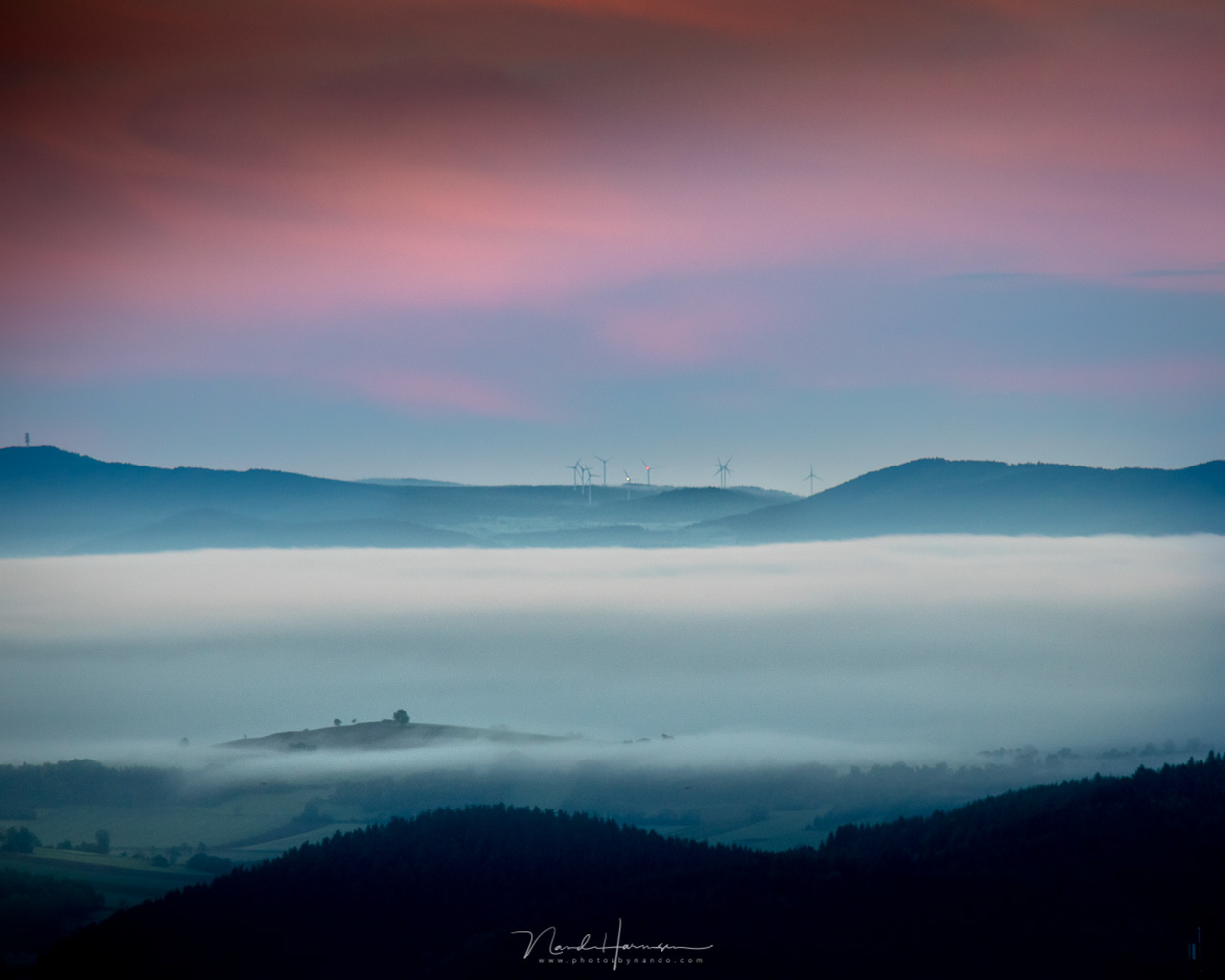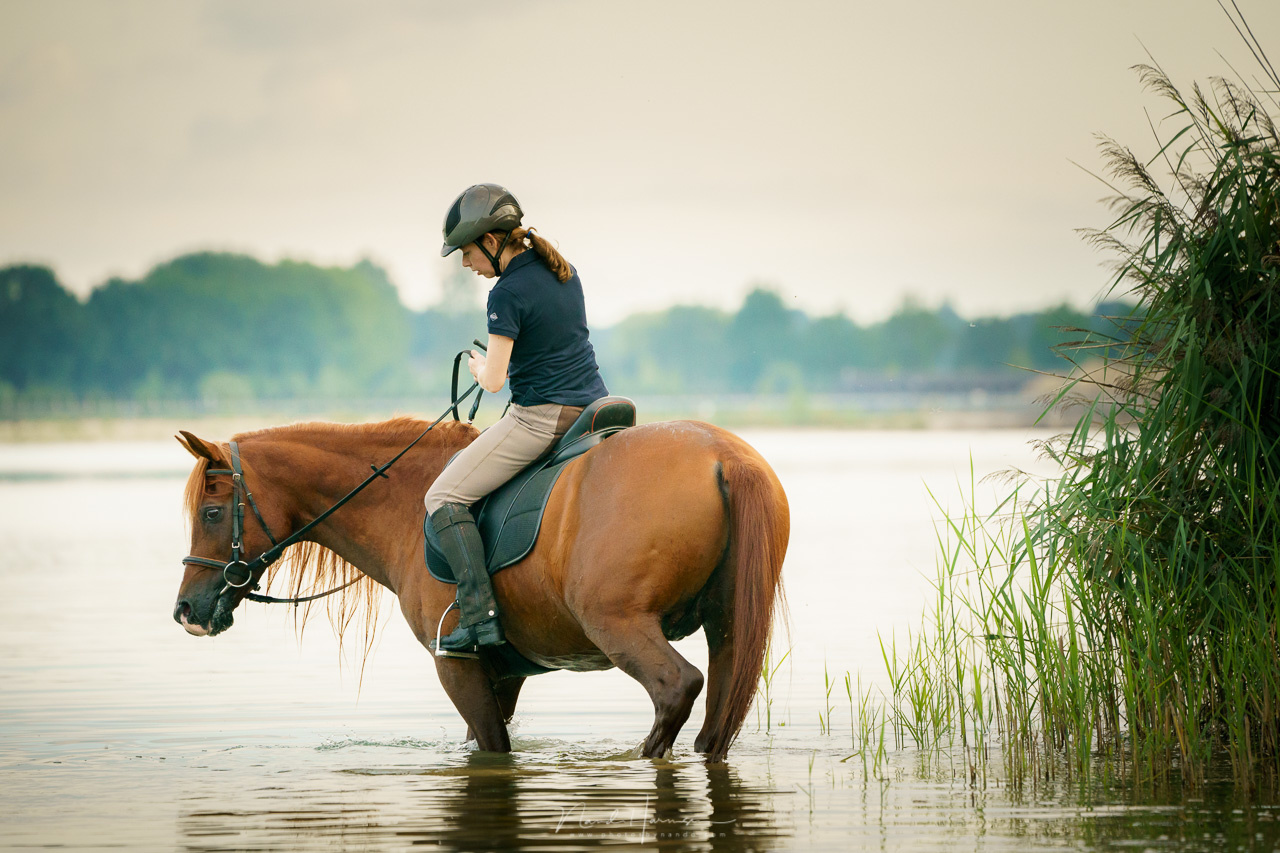I keep on wondering about the discussions of photographic enthusiast about camera technology and brands. Some enthusiasts even react very angrily at brands they used to have, or at other people when they mention some sort of shortcomings of their new camera. I would think a camera is just a tool… isn’t it?
Modern cameras are a wonder of technology. The possibilities are almost endless and every year manufacturers think of new options that were thought almost impossible. It makes taking photos easier, and often more difficult at the same time. Cameras need to be configured to address the personal wishes of the photographer. Menus have sub menus, and sub menus have their own sub menus. Everything can be customized and buttons assigned. Screens have been introduced in the viewfinder, rendering mirrors and pentaprism unnecessary.


I do like all the technological progress. It makes it possible to acquire the wanted result more efficiently, or easily. In some occasions it makes photos possible that weren’t possible before. I always think the technology must be in service of the photographer, and not the goal in itself. It is the same about camera brand. Why should that be important if the tool you use gets the job done?
Of course, there is a difference between all those camera brands. One camera has more options than others, and one brand may use a different technology than the other. An amazing face-AF and eye-AF may be perfect for a portrait or wedding photographer, while the landscape photographer couldn’t care less. Just like shooting 20 frames per seconds. It's just a small part of photography that will benefit fully from this possibility. The same is for a huge dynamic range. A landscape photographer that uses HDR techniques and filters will almost never have the need for that kind dynamic range, while the wedding photographer could benefit from it.


The thing I am trying to make clear is that those technologies and possibilities of a camera may be amazing, but no photographer will ever make use of every single option; they just use the part that is important for their kind of photography. And of course, it is amazing if your camera can shoot with a dynamic range of 14 stops or more, or if that camera can shoot 20 frames per second, or has face-AF and eye-AF that can even recognize and choose between persons. But that technology does not determine a good photo. And that is exactly why I am writing this article. When you change brands or buy a new camera that has features that aren’t available in the other camera, it does not mean that your photos are becoming better, or that the other camera is suddenly a bad one. But that is exactly what I hear and read way too often.


I had a participant at one of my masterclasses that had changed brands. He used to shoot with a Canon EOS 5D mark III and replaced it by a Sony A7R III. When we talked about that decision he mentioned it was the best decision he ever made, because his pictures never had that amount of detail, and his new camera had eye-AF, and a large dynamic range, and buttons that could be customized, and there was no mirror anymore, and so on. Since he switched to the other brand, the previous one was suddenly a bad camera, that couldn’t make any good pictures. Since I still use Canon, he was basically saying that I could not make a decent picture with my camera.


I have heard stories like this about Nikon users that went to Fujifilm, or Canon users that switched to Sony, or a Canon user that switched to Fujifilm and partly back again, and about DSLR users that switch to mirrorless. And a lot of them are telling the result of the new camera or brand is so much better than the previous one. If this is true, they basically tell us they have never made a good photo before.

If your camera technology or brand is responsible for a good photo, I am wondering what the criteria of good photos are. Is a good photo determined by the newest technology, like a special AF option build in the camera, or an electronic viewfinder instead of an optical one, or 14 stops of dynamic range instead of 12 stops? Or is the technology just a way to retrieve a photo with a little bit more ease?


I know of a good macro photographer who uses a (relatively cheap) DSLR, with a simple macro lens that is absolutely not top of the line, but who is taking photos that are really amazing and award winning. I once had a participant at my Lofoten photo tour that was making amazing shots, with wonderful compositions, but without the "best of the best" camera brand or latest camera technology.
I have been writing for Fstoppers for about half a year, and I have written articles about both photographic techniques and camera reviews. The funny thing is, when it comes down to articles that cover technique, just a few people seem to be interested. But when I write about a camera, or about a certain brand, or an expensive flashgun, people keep on coming back with comments. A lot of them are defending their choice of brand as being the only thing that is good, or burning down the other brand. Photographers that have switched brands are perhaps the worst, just like my example of that masterclass participant.


I have been taking photographs since I was ten years old. I started with a Praktica Super TL and eventually switched to Minolta because I could afford that one. When I finally switched to digital photography I wanted to have a Nikon, and bought a Canon because for me it felt better. And I have stayed with Canon ever since. I do camera reviews on a regular basis and get to know a lot of other brands and technologies. I have used Fujifilm (X100t, X70, X-Pro2, GFX-50s, XT-2), Nikon (D500, D810, Z 7), and Sony (A9, A7R III). I had the opportunity to shoot with the Hasselblad X1D-50c and the Leica SL for a while, and I reviewed the Panasonic G9, GX9, and the S1. And of course different Canon cameras like the new EOS R. I still use the Canon EOS 5D mark IV for my work as a landscape and wedding photographer and I am happy with it. I wouldn’t want to change it for any other camera I have reviewed, no matter if it is a Sony, Nikon, Hasselblad, Fujifilm, Panasonic, Leica, or any other one. The camera I use gets the job done, just like any of the other brands would do.


So I wish people wouldn't argue so much about the newest cameras, the best brands, the best technology; but rather about the techniques that can be used for making better pictures. Because better pictures aren’t made by a brand or technology, just like the images in this article will show. I bet you never guess what kind of camera these were made with (you have read how many cameras I have used). But you may guess if you like.







Nice work. #7 and #10 are my favorites.
Thank you... and it doesn't matter what kind of camera was used for these.
People I know who spend the most time researching gear and arguing about gear never end up taking many photos or video and just end up blaming the camera or the piece of equipment they don't have yet.
Exactly
When people talk to me about camera brands, I first point out that any modern DSLR can make a great photograph. Some are shocked when I don't recommend what I'm using. I first find out what they want to shoot, what they can spend, then give them the pros and cons of each (from what I know about them). I tell them that cameras are tools, pick the right tool for the job. Every camera has its pros and cons.
Everyone should do this
"Let's Make an End to All Those Pointless Camera Discussions" from a blog that thrives on promoting and monitoring pointless camera discussions and weekly excoriates those of us who haven't upgraded to Sony mirrorless. :|
I'd rather drink a banana milkshake.
I prefer strawberry, that is the best.... :D
I’m with Nando! I’ve grown sick of the constant barrage of articles deriding certain technologies and telling you that unless you have this many FPS or that many rear screen pixels or whatever we’re behind the photographic curve. The articles all seem to say that “mine is bigger than yours”, but if you don’t know what you’re doing or haven’t invested the time to learn the craft a bigger, badder tool doesn’t make you better.
Thanks Tom
It's a great article and the truth. you can liken it to a global meet up...you're far from home and you're with a group of strangers. So far everyone is cold to you then you meet someone and I"m from North America "oh so am I" I'm from NYC " oh me too" I live in the Bronx "really me too" I went to Bronx South High School "wow I went to North". NOW! you meet someone in NYC they are from Chicago they hate the Yankees you hate the Cubs funny how you could be great friends if you both lived in Hong Kong.
The answer David Bailey gave to the question. What is the difference between a pro camera and an amateur one......."Depends whose hands its in". In other words there are those that can and those that cannot no matter what the kit
Haha thats true, but god bless them for keeping companies innovating
So true... the amateurs keep the companies thriving
Good article, and it is very true that the photographer makes the images. All the talk about what is the best. We can shoot, focus ,and make adjustments faster, but we still don't have the image quality that the Civil War photographers had using homemade emulsion. Brushed on to glass slides. Go to any war museum and look at the images, the sharpness and details are phenomenal. In sports fps determines the placment of the ball. In their hand, inchs to feet away from their hand or foot etc. Not how good an image you can create, that requires talent. Everyone have a good day.
"Since he switched to the other brand, the previous one was suddenly a bad camera, that couldn’t make any good pictures. Since I still use Canon, he was basically saying that I could not make a decent picture with my camera."
If he actually said that the 5DMIII can't take good pictures, clearly that's moronic; if so, I would point out to him that all the shots he made on his Canon are not good photos (and obviously the 5DMIII is an excellent camera).
But if what he actually said is that the A7RIII has major advantages, then I agree with him.
You think that is what he actually said. But he clearly told me Canon was bad and Sony so much better.
Think about this: what you find major advantages, someone else might not.
Nevertheless, thinking that advantages make better photos is just nonsense
(oh I am sorry... I just got into the better-camera discussion - it is too easy)
Let's face it, "...an End to All Those Pointless Camera Discussions" would mean that this site and countless others would have almost nothing to say.
How dare you!
So true... hahaha
Fabulous photos Nando and I don’t care what camera you used. I am just enjoyed viewing your photos.
Thank you Arun
I think gear talk is fun as long as it is being civilised and logical.
In a perfect world I'll say I like my gears because blah blah blah, and you have a different choice because blah blah blah, and by the end of day no one is wrong and we all love our gears.
"Because better pictures aren’t made by a brand or technology, just like the images in this article will show."
So why do you use the 5DmkIV when you probably could have saved tons of money using a mkIII or mkII or hell, a Rebel? Seems like gear matters to some extent and if something matters, it's worth having a discussion about.
Gear does matter. Of course it does. I chose my 5D4 because it answered to my personal need. And because my old 5D3 was ready to be replaced. Thinking a rebel would do for my photography is foolish. Those camera's aren't suitable for my kind of use.
But this is not what this article is about.
"But this is not what this article is about."
It pretty much is. Yes, you framed it in a slightly different manner, but it all boils down to yet another take on the "gear doesn't matter" argument.
I take pretty ordinary photos at the best of times! Some of that technology really helps. For me though, the pictures that count are the ones that hold meaning. My favourite photo on my computer desktop is a scan of a damaged photo I took nearly 40 years ago when I was was young seaman serving on a lighthouse tender, at a lighthouse at the southern most point of mainland Australia. That old photo takes me back there in a heartbeat! I always wish I had a great camera but then I realise it's the story in the picture that counts....
Cheers
Chris
Such beautiful photos here. Whenever I see images like these, and there are so many, my immediate question is NOT; what camera was used. It is; where are these places. Not that I want to take the same photo, because I really don't like doing that, but to find new photos within the same area. These are very beautiful. Thank you for the article.
Thank you, Timothy. You should read my previous article, about the locations where the best photographs can be taken. Perhaps you like it, and give you inspiration.
I will do that. Thank you.
You say: "And a lot of them are telling (us) the result of the new camera or brand is so much better than the previous one. If this is true, they basically tell us they have never made a good photo before."
This is a non-sequitur. What they are telling you is that the new camera offers capabilities and features not found in the old camera.
I have often been told that the new camera makes it easier to do something; I have never heard anyone tell me that, just because they got a new camera, suddenly Henri Cartier-Besson's photographs are no longer any good.
My Sony a6500 makes many tasks easier than my Sony a6000 but the quality of the photos still rely on my judgement in composition and lighting.
No, I hear often their new camera does take better photos, during my workshops, masterclasses, presentations and during regular work, and it is almost always because of (new) features of the new camera. But the most idiotic thing is, they suddenly cry out the other brand is just crap.
Storytelling is the essence of all art in my opinion. The internet is great at getting into tech details and consumerism driven gear talks because it's interesting, new and profitable. Teaching storytelling is entirely separate from all that which is why online training, masterclasses etc are available. But the only way to get that good info is to pay directly for it which many folks don't see the value in doing. It is what it is...and it is backwards
Excellent points in your article, Nando. - Especially, "The funny thing is, when it comes down to articles that cover technique, just a few people seem to be interested. But when I write about a camera, or about a certain brand, or an expensive flashgun, people keep on coming back with comments."
I think this article proofs that point ;)
Thanks,
A bad Workman blames his tools is an old adage. Any camera ApS-C or Full Frame mirrorless Or not produced in the last 5 years is very decent.
I’m Canon and yes maybe they aren’t state of the art at all times but they are very easy to use and they’ve got great glass. I’ve no excuse not to be taking good photographs. Very seldom do I reach the limit of the camera. While I have a great interest in reading about gear I find there are too many obsessives writing in forums about how crap certain lens and cameras are. I own Fuji and Olympus and have used Sony and Nikon and they all have their good sides and small flaws. For me micro 4/3 is good because I have to get it right in frame. Full frame I’ve loads of flexibility in cropping post. It’s a wonderful time to be a photographer as the gear is so good and there are so many places to photograph. For me the enjoyment is the photographing. The specs sheet of another camera don’t matter when you in the field. You have to do the best with what you have.
Well spoken
Why are you anti-social? If not for the brand loyalty and brag rights, photography sites wouldn't receive half the visits and comments.
Just look at the comment sections of gear columns and non-gear columns and judge yourself. People are interactive ;-) in gear columns. It's good they are social ;-)
Judging by the size of those cameras on the cover, Nikon won't produce good images
Social can come in different forms. This kind of social often had a negative feel to it...
... well, that is what I think
Gear related trash talk can literally be traced in some form or another to the advent of photography.
Fun to picture gear talk 75 years ago (can't picture it)
Someone had the biggest camera obscura box... hahaha
People need to stop including the gear or exif information when they post a photo
That would be a good one.
But.... But... I can't brag about my gear :-(
Henri Cartier-Bresson was a photographer, he took photographs, he used a camera (mostly 1). He was (is) one of the world's greatest photographers, he took some of the world's most wonderful photographs, he used a camera, A camera.
Our high-tech world is hell-bent on one thing.....profits. I'll keep and use the cameras I already have. Thank you, thank you. You've been a wonderful audience.
Ahh... the myth of HCB.
Ok...forget about "HCB". Choose another famous photographer. How about, say....Ansel Adams? Or is that a myth too. Just try to understand the point.
Like HCB, Ansel Adams used numerous different cameras and lenses over the course of his life and like HCB, he was privileged to use some of the best equipment available in his own time. Sure, there was a point when both decided to become curmudgeons about the march of technology, but that tends to happen to old people who get set in their ways.
The mythology of these figures doesn't extend only to gear, though. It also lies in your claim (one that many share) that they are responsible for "some of the world's most wonderful photographs". I would say that they are responsible for some historically significant photographs and photographs that were amazing in their own time, but nameless and faceless people all over the world today take better photographs than these guys everyday to little acclaim. Part of it is the gear, but a lot of it is the fact that we have the benefit of information exchange on a scale that they never had.
HCB, Ansel, Cappa, etc. They were all giants in their time, but it's ridiculous to mythologize the men or their work as being more (or less) significant than they were. It's also ridiculous to read into their individual preferences for gear and assume that the same rules apply today because technological progress moved far slower in their primes.
Sometimes I wonder whether there will be any photographers in our own generation that are studied and held in such high esteem decades from now. In an age where photography is ubiquitous, who will leave their mark and be taught in history classes alongside Ansel Adams, HCB, Diane Arbus, etc.?
Anyway, I've gotten far off topic. I was just triggered by the HCB reference because there's this particular exaltation of him that I find tremendously off-putting. In the end, content is king and you work with what you have.
I don't think it's always "old people set in their ways" so much as people with enough life experience that has taught them that chasing new gear for years and years didn't really help their photography.
When there's a new technology that I KNOW will actually help my photos be better even if I was standing in the exact same spot as my best photo I took before, with the exact same conditions, THEN I might get interested in it. Those innovations are rare, and 'featureitis' is the norm. Marketing feature checklists for sales purposes, which rarely makes a photo better in any practical sense.